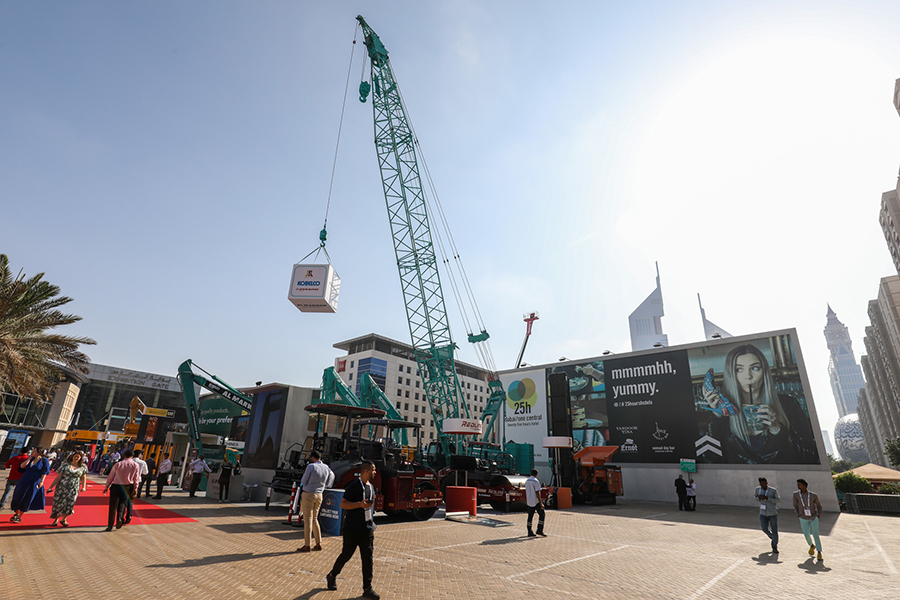The 2022 World Cup for Soccer—or football as it’s known outside of the U.S.—was held in Qatar. A small Middle Eastern nation, Qatar became the center of attention, in the sports world, for a few weeks. A neighbor, also on the Persian Gulf, is working hard to become the center of attention in business and commerce far into the future. If focusing on outstanding buildings and environmental concerns is the way to achieve that goal, the UAE (United Arab Emirates) should succeed.
The largest city in the UAE is Dubai and it has transformed itself from a sleepy backwater desert town into a capitol for capital and a headquarters for trade shows and commerce. As part of that transformation, exposition centers are being constructed and a complete clean, green, innovation-driven, human-centric city of the future is evolving: Expo City Dubai.
The pioneering legacy of Expo 2020 Dubai, Expo City Dubai is based on the belief that a broad coalition of people working together can create a more sustainable and dignified future for all. Designed as a blueprint for sustainable urban planning, it has retained 80% of the infrastructure built for the Expo and is part of the Dubai 2040 Urban Master Plan. Expo City Dubai boasts more than 120 LEED-certified buildings and eight CEEQUAL-certified projects.

CEEQUAL is the international evidence-based sustainability assessment, rating and awards scheme for civil engineering, infrastructure, landscaping and works in public spaces. It was established following work promoted by the Institution of Civil Engineers. Each project achieved the top ‘Excellent’ rating, representing the highest levels of sustainable design, construction, and operations.
Dubai DEC
Located in the heart of Expo City Dubai, the DEC (Dubai Exhibition Centre) is a state-of-the-art multi-purpose venue offering world-class hospitality services. Spread across two campuses, the DEC offers over 484,000 square feet of customizable space housed in a 646,000-sq.ft. site, with 14 multi-purpose halls, four suites, and 24 meeting rooms seating from seven to 56 persons.
A recent show at the DEC was the Big 5, the largest and most influential building and construction event in the Middle East, Africa, and South Asia. This year’s Big 5 show featured more than 2,000 exhibitors from more than 60 countries. Part of the show was Start-Up City featuring a keynote panel discussion looking at the regional investment landscape and how government, incubators, and start-ups are tackling what is seen as one of the healthiest and fastest-growing ecosystems in the world.
Miami-based Togal.AI, a start-up bringing AI (artificial intelligence) to construction, was the outright winner of this year’s Start-Up City competition. Togal uses machine learning to automatically calculate the square footage of areas and complete full take offs and manages complex construction documents with online collaboration — compressing weeks of work into seconds. According to Togal, its platform can cut large construction and contracting firms’ workloads by 40%, resulting in millions of dollars and thousands of hours of work saved.
As the first-place winner, Togal will receive a $25,000 curated marketing package, have the chance to partner with UAE-based ALEC Engineering & Contracting for a pilot to expand Togal.AI’s reach, be part of the Startup City Fellowship, and be considered for CESC’s affiliate program, a global incentive to help startups scale their companies.
Want to tweet about this article? Use hashtags #construction #sustainability #infrastructure #IoT #AI #5G #cloud #edge


